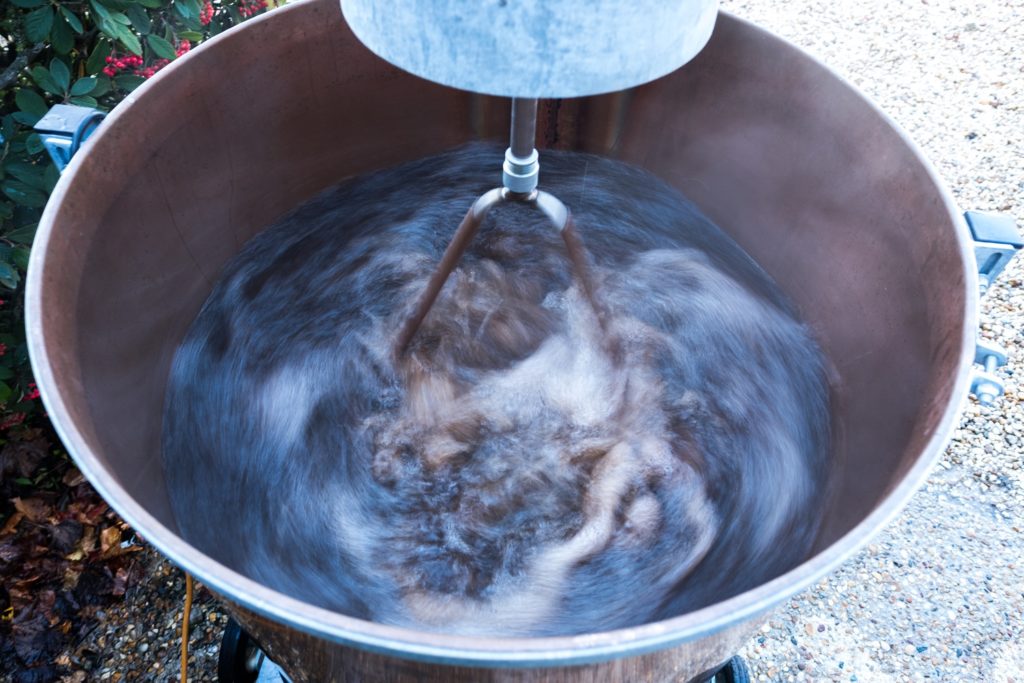Our Experience
In order to best express the originality of our terroirs, different care is given to the soil and the vineyard:
- Practice of mass selection replanting to maintain diversity. This consists in selecting the most qualitative vine plants.
- To spread a "home-made" compost to stimulate the microbial life of the soil, which is essential for the formation of humus and the assimilation of minerals in the soil.
- Practice of natural grassing every 2 rows, since the presence of other plants forces the vine to dip its roots deeper in the soil.
- Ploughing is done to contribute to deep rooting.
Other preparations are applied to the ground if necessary:
- MT dung compost supports and strengthens the soil decomposition process. It contains all the elements that help in the formation of the clay-humic complex. It contains a considerable number and variety of bacteria.
- Preparation 500, horn dung, acts on the plant. It promotes microbial activity, the formation of humus. Its effectiveness is confirmed after many tests.
- The preparation 501, horn silica, helps the plant to structure, harden and helps the development of the leaves, the balance of the flower and the energy necessary for a good and beautiful fructification.
Plants and minerals material
If the balance is reached, the plant will defend itself to resist parasites. However, sometimes it will be necessary to intervene to help the plant with herbal teas for anticipate certain diseases and if necessary with mineral materials but in very low doses.
PLANTS:
Nettle tea regulates iron and stimulates plant growth.
Horsetail, an anti-cryptogamic agent, pushes the fungus towards the ground.
Wicker, fight against downy mildew.
Valerian, powerful anti-stress to apply after a hail.
All the preparations and herbals teas need a " dynamisation » prerequisite which consists in stir the plant in warm water in a spiral motion that is suddenly reversed several times. The energy of a substance is transferred to the water and sprayed in a homeopathic dose. This preparation is applied when the days are favorable and are defined by a timing of seedlings (astronomical information on the different rhythms of the Moon, planetary position..).
MINERALS MATERIALS
Copper, protects the vine against disease attacks, the main one being downy mildew.
Le soufre, utilisé pour lutter contre l’oïdium.
From harvest to cellar...
Grapes are handly harvested, at maturity of skins and seeds, so as to respect the grapes that will arrive whole in our pneumatic presses or vertical presses. A slow extraction allows us to have clear juices that do not require the addition of oenological product, except sulphur in low dose. ..
The biodynamic culture allows life and yeasts to develop on the skin of the grapes. The more native yeast varieties there are, the more typified the wine will be. It is therefore not necessary to introduce foreign yeasts that guide the aromas and eventually standardize the wines.
After fermentation, the wines remain in contact with their lees which nourish them and at the same time which stabilize them naturally.
The wines are bottled when we feel they are ready and always according to the moons in order to preserve the fruit. The biodynamic method allows to obtain a better stability and conservation of the wines, giving them more energy.
Preparations
They come from processed vegetable, animal and mineral materials:
Horn dung compost MT
Supports and strengthens the decomposition process of the earth. It contains all the elements that help in the formation of the clay-humic complex. It contains a considerable number and variety of bacteria.
500 preparation
Horn dung, acts on the plant. It strengthens underground life. Its effectiveness is confirmed after many trials: the roots are longer, denser, better distributed.
501 preparation
Horn silica, supports the development
of the leaves, the balance of the flower and the energy needed for a good and beautiful
fructification.
These first three must go through the dynamisation before spreading.
Other preparations, made from yarrow, chamomile, nettle, oak bark, dandelion and valerian, have all undergone transformations – fermentations in the presence of animal organs for some – raising their primary properties by transforming them into humus with special qualities.
The latter are indispensable, they are used for seeding composts in order to guide the fermentations for the balance and harmony of the soil and the plant.


